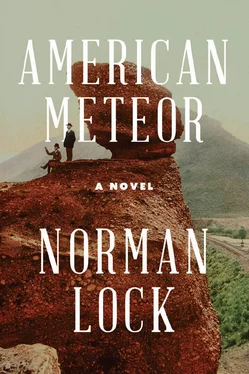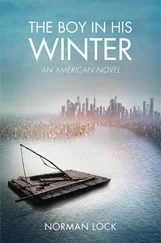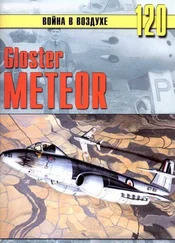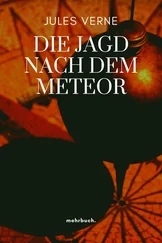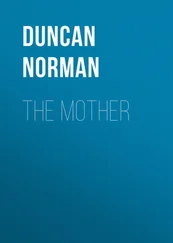One summer’s evening at a railhead in the Black Hills, Durant fell into a genial mood indicative of a profound satisfaction with the world and his privileged place in it — encouraged by whiskey and the contemplation of “his empire,” sprawling in every direction beyond what the human eye could take in. He’d just returned from viewing a seven-hundred-foot wooden-truss bridge thrown across Dale Creek Gorge by his Chinese and Irish workers. Momentarily well disposed toward them, he spoke kindly to me, to whom he rarely spoke at all except to instruct me in my duties, about his past days as a surgeon in Albany, as a wheat broker, and a railroad man.
“You were acquainted with President Lincoln, I believe,” he said, gazing wistfully through the carriage window at the gathering dusk.
“In a manner of speaking.”
“Seeing the bridge this afternoon reminded me of another, built across the Mississippi in ’56.”
Pretending to be interested, I threw the bar rag, with which I’d been polishing the liquor glasses, over my shoulder and looked in his vicinity. He didn’t like me to stare. Maybe the eye patch disturbed him, although he’d been a surgeon and the thought of the empty orbit underneath wouldn’t have made him squeamish. To be fixed by an underling’s gaze, like a pin through an insect specimen, must have annoyed him. What insect most resembled Durant? The cicada-killing wasp. And me? One that crawled about in muck and seemed to be at home in it. The idea of beauty lay far off for me. The gulf between that “rough sketch” of a man in a white suit and the person who would winter in the Wasatch with the Ute is as wide as the Pacific Ocean, which I would glimpse, once, like Moses did the Promised Land. No, I could not have said then what beauty meant. Nor could I have explained what it meant to be human. Six years after that summer night in 1868, I would have my picture taken, sitting, like a desert sheikh, on the hump of a Custer-dispatched buffalo where it lay in terrifying silence on the grass. I was a coward even then.
“In the fifties, I was involved in the construction of the Rock Island Railroad,” said Durant. “I hired Lincoln to defend a new bridge against a suit brought by riverboat operators claiming it was a hazard to navigation. They demanded that the bridge, the first to carry track across the Mississippi, be taken down, after the steamer Effie Afton ran into it. Abe was a long-shanked, raw-boned, wiseacre Springfield attorney then. Like me, he believed in America’s western expansion across the Mississippi and on to the Pacific and in railroads as the thing to accomplish it. Riverboat companies, which had been fattening on the north-south trade, didn’t see it that way. Lincoln won the case— Hurd vs. Rock Island Bridge Company —by arguing it brilliantly. Many people had a low opinion of Lincoln’s brains; some still do. But if they’d seen him in the courtroom that day, they’d have had their minds changed. Honest Abe was shrewd and ruthless when he had to be. He’d fight tooth and nail if you cornered him. I admired the man and the lawyer. You know, Stephen, there were two reasons I hired you: first, because of General Grant’s push; second, because you played a part in Lincoln’s send-off.”
He smiled benevolently. He might have patted me on the shoulder had there not been a polished mahogany bar between us. Encouraged, I seized the opportunity to ask him a favor. One succeeds in business, as in war, by taking advantage of an enemy’s weak moment. And if robber barons were in the habit of getting what they wanted, Durant might respect a young man for going brazenly after what he wanted.
“I have a proposition for you, Dr. Durant.” I thought he might overlook an upstart’s ambition if I couched my request in terms as familiar to an entrepreneur as a Hail Mary is to a Catholic.
“A proposition. Is that right?”
I detected amusement in his tone, and, emboldened, I continued: “I’d like you — that is, the railroad — to set me up as a photographer. I can use a corner of the tool car, next to my bunk, for a darkroom. Any photographs I make will be Union Pacific property.”
“Do you know how to make a photograph?”
His two eyes bore into my one good one like a pair of hot gimlets. If any power on earth could have grown me a new eyeball, it would have been Durant’s stare. I felt my insides clench, like a case of the gripe, and my poor bunghole pucker. For once, I kept my gaze fixed and unwavering on his, so as not to appear shifty. Now was not the time for servility. I wished I had on my own clothes — my Union blues, for preference, if I hadn’t given them away — instead of a weaseling steward’s uniform. Chen was right: It did make me look like a bottle of milk.
“Have you ever taken one?” Durant asked.
“No, sir.” Honesty, my instincts told me, was the best card to play. “But I watched that newspaper fellow up on the hundredth meridian, and there didn’t seem much to it. I’m sure I can teach myself how and then take you some swell pictures of railheads, tracks, and scenery on the way to Ogden.”
He grew silent, letting his attention drift to the carriage windows, which the pitch-dark night outside had turned into mirrors. In one of them, I saw on his face the stricken look of a man who all of a sudden finds himself in a place he doesn’t recollect and can’t explain how he got there. I let him be awhile. The rambunctious Wyoming wind whipped and buffeted the car as though it meant to topple it. I felt lonely. A man who comes to the end of the world, with night and nothingness at his back, would feel like this. It came to me with a jolt how isolated we two were in our candlelit car, with only the huddles of miners’ camps, sod huts, and miserable Indian villages between us and the civilized world on the far side of the Mississippi. If I were to climb one of the limestone hills that shone faintly up near the rising moon, I wondered if I would see — faraway to the east — a lightening of the sky in token of broad pavements thronged by men and women and cobbled streets noisy with traffic in the gaslit cities of Chicago, St. Louis, and New York.
I’d spent my life in crowds — in Brooklyn and Manhattan, Washington City and Omaha, and on fields where blue- and gray-coated dead men were in the majority. But there was solace even in that, poor as it was, for the dead can be company when you have no other.
My life didn’t end among granite peaks, on a solitary length of track, but I would never again sense so vast an emptiness. It belonged to the Lakota — that emptiness— granted them in perpetuity. They were welcome to it. Only an Indian would live in desolation, without so much as a telegraph wire to bear witness to enlightenment and progress. That changed after Custer’s Black Hills Expedition. Having once been deemed worthless and therefore fitting for savages, the Black Hills would become the Gum Sham the Chinese had dreamed of finding. Only they had no more right to it than the Indians cast out from what had been given them “for as long as grass grows and rivers run.” What did an Indian want with a precious metal, when he’d be just as happy with a tin can — or a bottle, preferably full of rum? Such was the general opinion and, to be truthful, mine. It would take time and experience before I could rise above the common view, tarred and mired with it as I’d been since my tenement days. With us, hatred was a staple we’d gnaw on, like a dog a bone. It might have lacked nourishment, but it kept the teeth sharp. Of all the people I knew in childhood, only my mother managed to make room in her generous heart for whoever or whatever needed comforting.
“If you can stake me,” I said, rounding to my proposition, “I’ll undertake to be the Union Pacific’s photographer.”
Читать дальше
